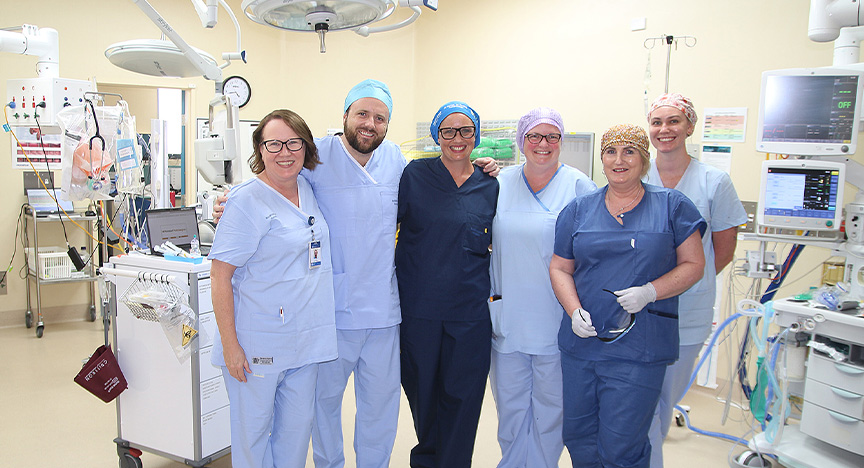
Summary
Rockhampton Hospital has introduced an innovative model of care where specially trained nurses are supporting sedation to ensure patients have access to endoscopies when they need them.
Suitable low-risk endoscopy patients are now treated using EDNAPS (Endoscopist-Directed, Nurse-Administered Propofol Sedation), where trained nurses administer sedation under the direction of the endoscopist.
Central Queensland Health Senior Medical Officer Dr Andrew Scott was well versed in the innovative procedure when he worked in Cairns where it was first introduced. He has helped introduce the service in Rockhampton, along with senior Surgical Nurse Trudy Tempest.
Ms Tempest says there are many positives to this new service because it reduces the number of staff required for the procedure to one doctor and three nurses.
“It means nurses are upskilled and able to work to their full scope of practice, it frees up specialist anaesthetists for more complex cases, and it means we can offer more endoscopy lists to ensure patients get timely care,” she said.
“Demand for gastrointestinal endoscopy is increasing as a result of the expanded national bowel cancer screening program, and EDNAPS is allowing us to open more lists, so patients get their scopes sooner, providing early detection and therefore earlier treatment of any cancer or pre-cancerous lesions.”
Dr Scott said the procedure was better for patients because Propofol provides rapid sedation with a quicker recovery time compared to other sedative medications.
“This helps patients feel more comfortable during the procedure and recover more quickly afterward.
“Propofol sedation, when administered under the direction of an endoscopist, allows for the sedation to be tailored to the procedure and the individual patient’s needs, as there is more precise control over the depth of sedation.
“It also has a short half-life, meaning that patients recover more quickly from sedation and can be discharged sooner.
“This service is a great example of multi-disciplinary innovation allowing safe, high-quality care that’s even more accessible to our patients.”
So far almost 100 patients have been treated using this service since December 2024, and every one of them provided positive feedback, saying the process was well explained, staff were reassuring, friendly and helpful; they did not remember the procedure itself and felt no pain.